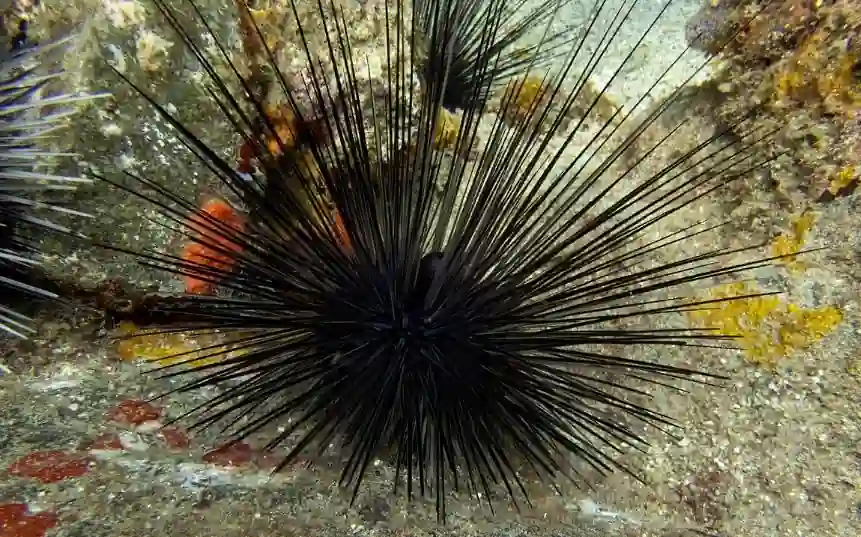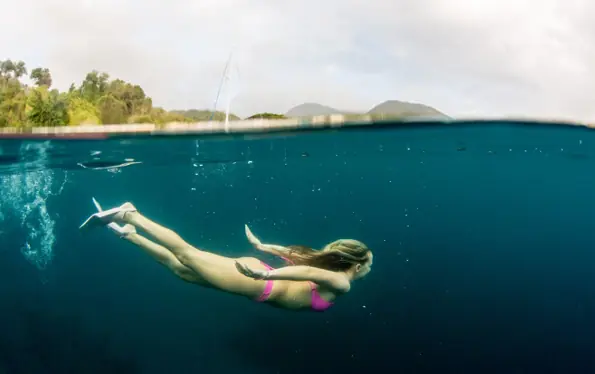80% sea urchins died off becoming major threat to marine life
The die-off long-spined sea urchins have become a major cause of concern for the protection of marine life as it plays a significant role in removing algae and maintaining open spaces for the coral growth.
17th of June 2024

Jamaica: Around 80% of sea urchins across the Caribbean, Gulf of Mexico and Florida Keys have died off. The die-off long-spined sea urchins have become a major cause of concern for the protection of marine life as it plays a significant role in removing algae and maintaining open spaces for the coral growth.
Notably, the world celebrated Oceans Day in the recent times but still the local scientists found that nothing productive was done to save the marine life. In an article shared by Jamaica Gleaner, they noted that such ignorant behaviour towards the outbreak killing of sea urchins would result in causing devastation in the near future.
As per the search held by the executive director of the GoldenEye Foundation in Oracabessa Bay, St Mary, Travis Graham, nearly 80% of sea urchins in the territory of Jamaica have been affected. Also, the National Environment and Planning Agency shared in their reports that the Diadema species, like parrot fish, is one of the most significant herbivores on Caribbean coral reefs, which improves the overall quality of life of the people within the Oracabessa community.
As per the reports, several areas have been impacted by the die-off long-spined sea urchins, which include US Virgin Islands, Saba, St Eustatius, St Vincent, Antigua, Dominica, and Saint Lucia. The health of the tropical waters of the Caribbean region has been constantly deteriorating, with fewer sea urchins since the 1970s.

In series titled ‘Oceans’ by conservation news service, Mongabay which was published in 2023 recorded that the first urchin disease outbreak was begin in 1983 which led to killing off 98% of the Caribbean’s long-spined sea urchins. It also mentioned the impact of rising sea temperatures, ocean acidification, pollution, overfishing in declining the count of coral reefs and fish stocks.
Along with that, the series also mentioned about the lethal outbreak of the same disease struck, which disturbed the 12% recovery of the urchin’s numbers that had taken place.
In a report shared by Jamaica Gleaner, it stated that parrot fish actually gets more credit for being the significant coral reef cleaners in the Caribbean but in actual long-spined urchins are more aggressive algae grazers. As per the 2014 IUCN report, Caribbean corals have shown a decline of 50% since 1970s, with major consequences for the marine food webs of the region.

Travis Graham shared that they have been playing significant part in protecting the corals by creating a land-based lab with tanks in Oracabessa Bay. He also talked about their partnership with a university in Florida to learn how to spawn and also asserted that they wanted to do a lot to protect the sea urchins but they didn’t really do as much as they wanted to do. He also remarked that they are also limited in terms of the resources of what they want to do.
While elaborating, he stated that they want to use sticky paper to capture larvae in the sea and bring more baby urchins to study their growth patterns and look how they can spawn them. Graham also noted that they are observing a resurgence of sea urchins but they are still doing research on the phenomenon that is creating an issue so that they address those problems and protect their marine life.
While sharing about the devastation of coral species, he stated that they had planted over 35,000 corals in the last eight years and had an active coral reef nursery with up to 3500 corals in them, and they all died. He also shed light on the hard corals, acropora and out-plant size which also died. He noted that they focus on those corals because they are branchy and provides greatest protection for juvenile fish which supports growth.
Graham emphasised on addressing these problems because it impacts marine environment and fisheries sector of Jamaica. He added that it further directly creates a negative impact on the tourism sector as three out of every four tourists engage with the marine space.
Therefore, he added that it is necessary to fund entities like NEPA so that they can maintain a robust monitoring system, ensuring enhanced marine life.
Latest
- Randy Baltimore nominated for St Philip’s North By-Election after Yearwood resignation
-
St Kitts and Nevis: PM Terrance Drew meets US Secretary of State to strengthen bilateral ties -
Dominica to welcome over 15,000 Cruise Passengers this week -
Trinidad and Tobago: Gunmen rob two women in carjacking, victim hides in drain -
Jamaica: Woman severely burned in Westmoreland Gas Station fight; Three charged
Related Articles

1st of December 2024

1st of December 2024

1st of December 2024

30th of November 2024

22nd of November 2024

26th of November 2024

21st of November 2024

17th of November 2024
